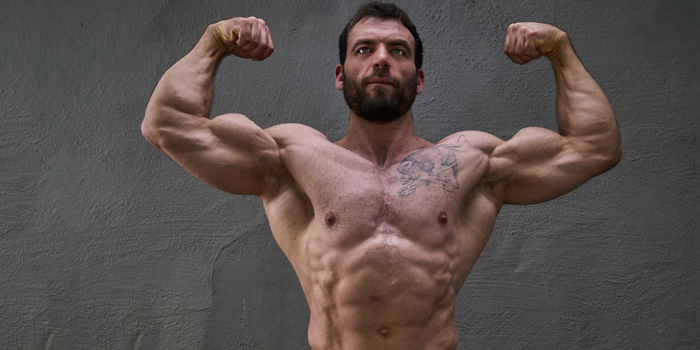
I recently posted an Instagram video of a big squat I hit in the gym – my first 800+ squat, technically, although I did 799 at Reebok Record Breakers last year.
Like I said on IG, I really shouldn’t have taken the lift: I hadn’t trained for it – in fact, hadn’t trained competition-style squats in quite some time – and the risk of injury far outweighed the value of a small PR. I took the rep because I needed some way to de-stress from pressure outside of the gym, and I got away with it because I’m a pretty high-level lifter and I know my body well.
As a coach, I would never recommend that any of my athletes do the same – in fact, I would argue as strongly as I possibly could against doing so. There are other, safer, more productive methods of stress relief. And that’s the point of this article: I think, more often than not, elite lifters are the last people you should try to emulate.
It’s pretty simple, really: most guys (and girls) at the top got there because, through a lot of hard work, they were able to take advantage of some characteristics that are outside of the norm. Maybe they’ve got incredible leverages, or a natural kinesthetic awareness, or maybe they have the grit factor. Speaking of the grit factor, it’s important to note that I’m not trying to play the genetics card here. No one is perfectly “normal,” and everyone has their own individual strengths and weaknesses. High-level athletes have found ways to channel their strengths and cover or compensate for their weaknesses.
Therein lies the problem: you have your own individual strengths and weaknesses, and they’re probably not the same ones as those of the people you follow on Facebook or YouTube. So why in the world would you try to emulate them? And before you say “I don’t,” have you ever:
- Watched Dan Green push a set of deadlifts to RPE 12 and try to turn up the effort at your next workout?
- Decided to try sumo because it works for Stefi Cohen?
- Thought about cutting a bunch of weight for your next meet because you saw me bragging about my (massively uncomfortable) post-weigh-in bloat?
I’ll admit that I am absolutely guilty of trying stuff like this in the past, and I bet some of you have, too.
And let’s be real: how many top athletes have no idea what the hell they’re doing? Very, very, very few of them. Incidentally, that’s why it’s so fucking ridiculous when the Internet troll who squats 405 calls out Ray Williams for not hitting depth in training. Ray’s methods may be slightly unorthodox, but he clearly knows exactly what works for him and what doesn’t. That’s the key: his success comes from understanding what works for him. What works for him will almost certainly not work for you, because you don’t have Ray’s leverages, size, or mobility issues.
The takeaway from all this is simple. First, instead of trying to learn from watching the biggest, strongest, or best-looking people, look instead to the guys who have strengths and weaknesses that are at least somewhat similar to yours. Then, instead of looking at their outcomes – that is, what they’re doing now – try to understand what they did to get there. How did they maximize their strengths? How did they compensate for or address their weaknesses? Note that you don’t necessarily need to only consider elite athletes. You can often learn a lot more about how to squat from a guy who started from 135 and had to work his way up to 650 than you can from a guy who started at 900 and worked up to 1000.
Second, take a closer inventory of your own skills, and deliberately consider how you can use them to improve. This isn’t always straightforward! If you have phenomenal work capacity, maybe you should take advantage of that with high-volume training; or maybe you will benefit more from low-volume training because it will force you to address other shortcomings (perhaps your ability to keep good technique at high-percentage work). Having a strong support system who you can rely on for objective feedback is tremendously valuable here.
And, finally, don’t compare yourself to others. There’s nothing to be gained by doing so.








